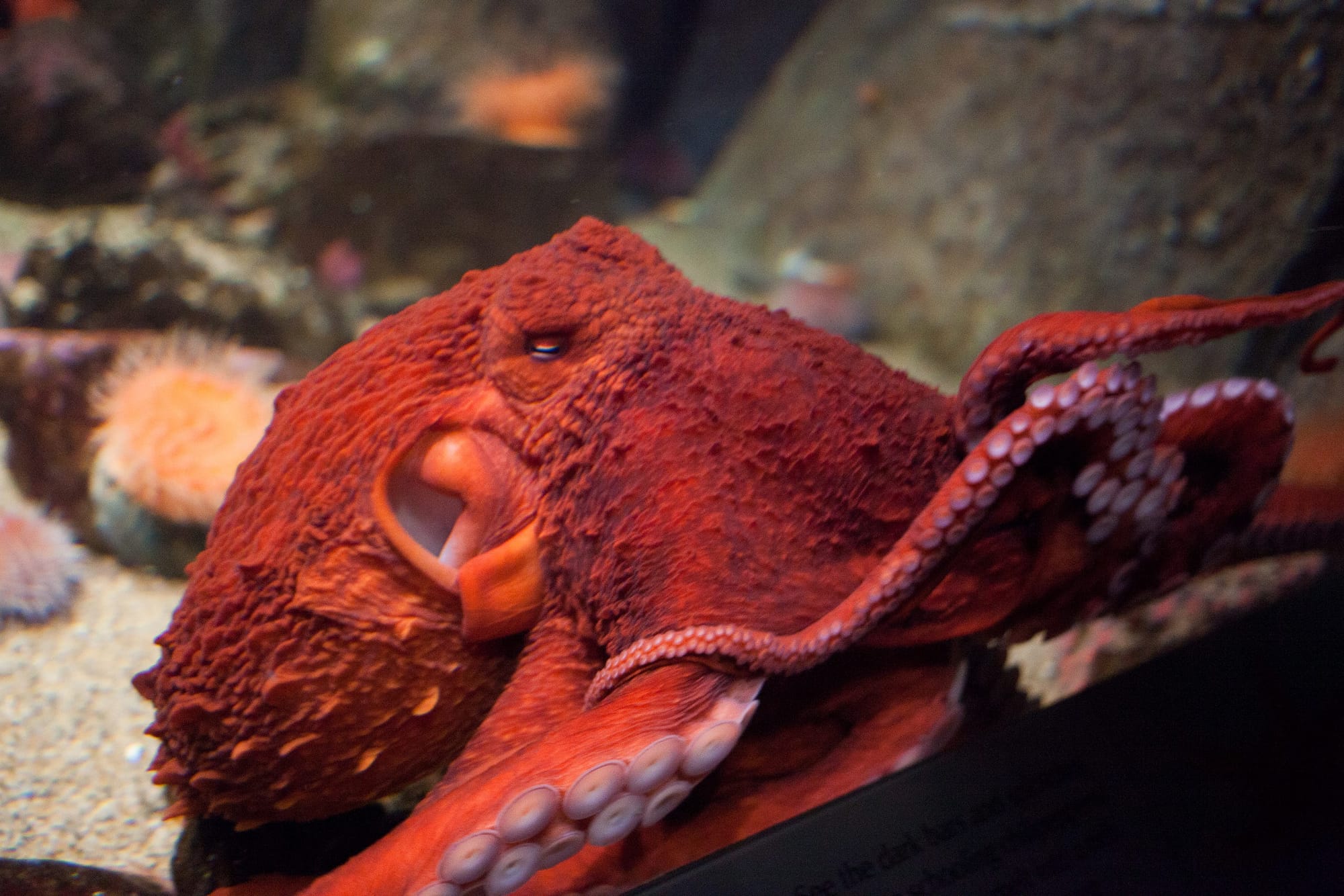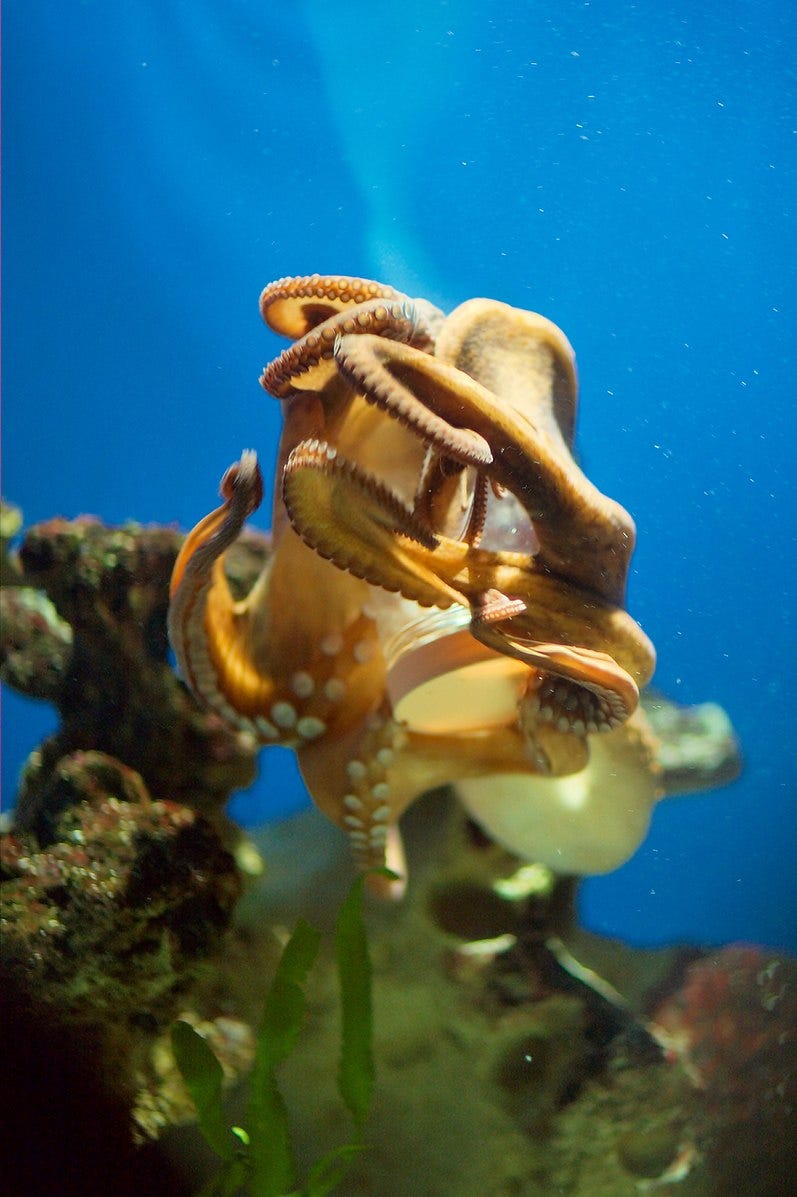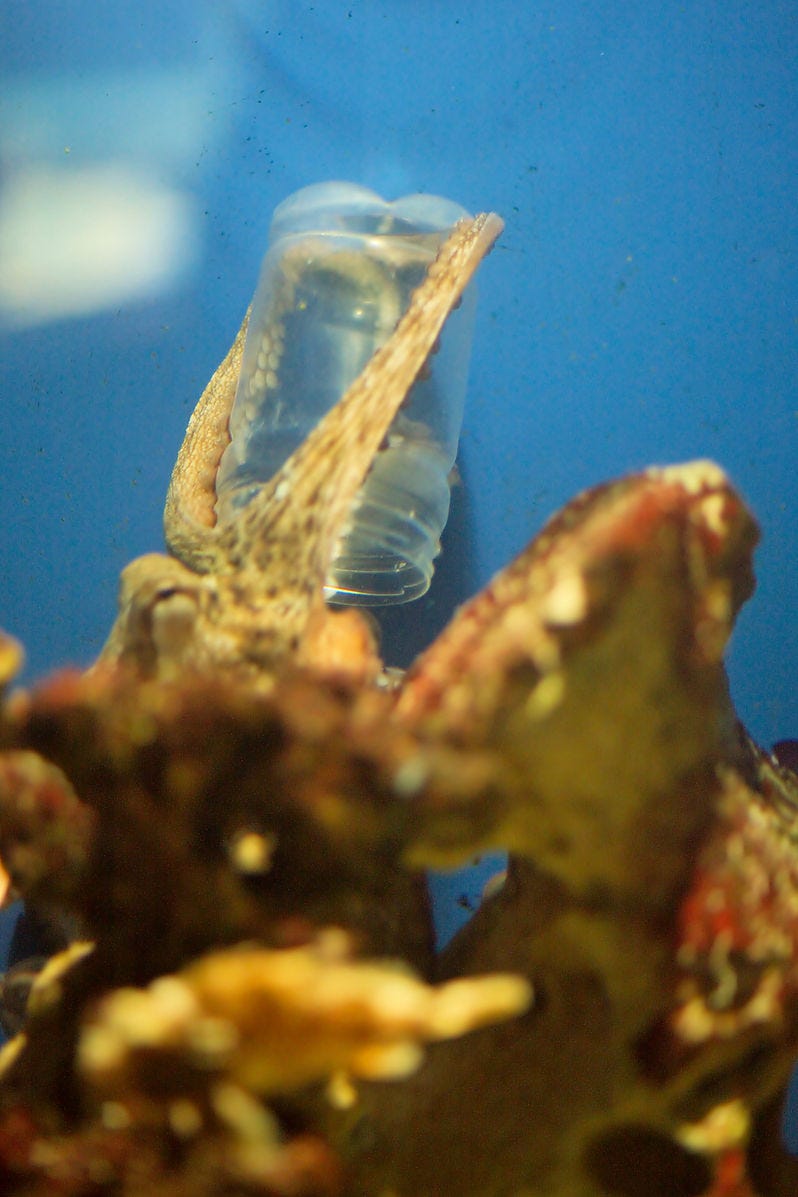
In a season based on a behavior generally correlated with high levels of intelligence, how could I not include a story featuring our favorite smart invertebrate (first introduced in Season 4 as a master mimic)? We’re going even further afield than before, as unlike the cats from last week, cephalopods are completely asocial, even during early life. There simply is no potential for social play at all.
In fact, much like the turtles we discussed earlier, there seems to be little that a cephalopod could gain from play behavior. They also receive minimal parental care, are heavily instinctual (at least at birth), and the majority of species are not social. In fact, in both squid and cuttlefish, even anecdotal evidence of play is lacking. However, the octopus is a different story. Because their arms are longer and more able to interact with their environment, there have been numerous cases of object play observed in octopuses, similar in type to the behavior displayed by Pigface and other turtles in the linked story.
Their high level of manual dexterity allows for an even broader range of object play than in some birds and mammals. For example, they can open glass and plastic containers that have screw caps, as pictured below. This is often used as a form of enrichment exercise for them (something done for similar reasons why Pigface got objects to ‘play’ with) and can contain a treat inside as a reward. That part disqualifies it as play behavior, but is illustrative of their potential in that area.


However, octopuses have also been observed pushing and pulling objects, as well as repeatedly releasing toys into a circular current and then catching them, all without any tasty treats to motivate them. In the end, it’s difficult to say whether these animals engage in play or not. The research is still fairly sparse (a key point to keep in mind: while anecdotes are fascinating and you should definitely use them to drive potential research questions, scientific knowledge relies on repeatable experimental observations).
Part of the issue in categorizing play in this group as compared to others is that the cephalopod nervous system is quite different from those of most vertebrates, including humans. The vertebrate system is very top-down in function, with the central nervous system (brain and spinal cord) distributing signals and commands throughout the body. But an octopus has no spinal cord and its brain contains only about 1/3 of the total neurons in its body. The majority are instead located within its eight arms. With its intelligence and processing power much more decentralized, it is difficult to quantify behaviors, such as play, that we have traditionally evaluated based on human experiences and characteristics. In fact, because so many neurons exist in its arms, manual manipulation of objects could be much more stimulating for an octopus than for any vertebrate.
We still don’t have a very good definition of play for humans, let alone non-human animals. In some ways, the study of animal play was for a long time treated like the red-headed stepchild in the field of ethology (the study of animal behavior). However, that is slowly beginning to change. I must admit, unfortunately, that we in the scientific community have all too often fallen into the caricature of the ‘ivory tower egghead’ who doesn’t pay attention to the world around them or the opinions of non-scientists. We dismiss anecdotal evidence out of hand, instead of using it as a tool and a building block.
I think animals like the octopus are a good way of examining our own biases regarding animal behavior. They are clearly intelligent, but categorizing and explaining that intelligence is still difficult because of the sheer weight of differences in our physiology. Do octopuses play? We honestly don’t know for sure yet, but that’s the key word: yet. It’s important not to shy away from difficult questions just because the process for answering them isn’t straight forward.
I wanted to include another video of a playful animal for this story, but most of the ones I found for octopuses seemed to show its inquisitive nature in probing new objects in its surroundings, but were difficult to categorize as actual play behavior. Again, this is not to say that they aren’t playful, just that video documentation of that type of behavior is still sparse (in contrast to videos demonstrating their general intelligence, which exist in spades). Even still, have a look at this video of a small octopus investigating a divers hand.
Tiny cute octopus plays with scuba diver by Rumble Viral, YouTube
We’re almost done with Season 6. It’s been a remarkable journey full of playful encounters. If you’ve enjoyed this topic, please let me know by leaving a response and please share this with others you think might be interested.